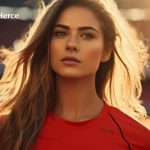Introduction
Founded in 1950, Milliyet has long stood as one of Turkey’s most respected and influential daily newspapers. With a name that translates to “The Nation,” Milliyet has played a significant role in shaping Turkish media, politics, and society. Over the decades, the publication has navigated various political landscapes, earned a reputation for both its journalistic quality and the controversies surrounding it, and adapted to the rapid digitalization of news.
This article explores the history, significance, and the changing landscape of Milliyet, a staple of Turkish journalism.
Origins and Evolution
Milliyet was established by Ali Naci Karacan, a prominent Turkish journalist and politician, in 1950. Initially, the newspaper was intended to offer a centrist voice amidst the intense political divisions that characterized Turkey’s post-World War II environment. Karacan’s vision was to create a publication that would serve as a platform for informed political discourse while remaining accessible to the broader public.
Through its early years, Milliyet grew steadily in both popularity and influence. It became known for its strong editorial stance on nationalism, human rights, and secularism — key issues in Turkish political life.
A Platform for Intellectualism and Journalism
Over the decades, Milliyet distinguished itself by maintaining a balanced and intellectual approach to news coverage. It has been home to some of Turkey’s most prominent columnists and intellectuals, who contributed thought-provoking pieces on current affairs, culture, and politics. Writers like Abdi İpekçi, a well-known journalist and editor-in-chief, played a pivotal role in shaping the newspaper’s intellectual identity.
İpekçi’s assassination in 1979 by far-right nationalists shocked the nation and marked one of the darkest chapters in Turkey’s media history. His murder underscored the turbulent political climate of the time and the risks faced by journalists who challenged the status quo.
Political Influence and Challenges
Throughout its existence, Milliyet has faced numerous political challenges. Turkey’s volatile political environment, with several military coups and frequent changes in government, often led to confrontations between the press and the state. Milliyet, like many other Turkish newspapers, was sometimes subjected to censorship and pressure from various political factions.
During the 1980s and 1990s, the publication was particularly significant in the context of Turkey’s democratization process and its ongoing struggles with military influence in governance. Despite these challenges, Milliyet managed to uphold a standard of journalism that many Turks found credible and trustworthy.
The Shift to Digital and Modernization
As with many traditional newspapers, the digital age presented a unique set of challenges and opportunities for Milliyet. Faced with declining print readership and the rise of online platforms, the newspaper embraced digital transformation. In the 2000s, Milliyet invested heavily in its online presence, launching a comprehensive website and engaging with readers on social media platforms.
Despite these efforts, the digital era brought new challenges, including increased competition from alternative news sources and citizen journalism. Like many global publications, Milliyet had to navigate the fine line between maintaining journalistic integrity and staying relevant in a fast-paced, often sensationalist media landscape.
Ownership Changes and Criticism
Ownership changes in the media sector have been a recurring theme in Turkey, and Milliyet has not been immune to this trend. Since its inception, the newspaper has changed hands several times. In 1979, the newspaper was sold to the Karacan and Simavi families. Later, in the 2000s, the Milliyet brand became part of the Demirören Group, one of Turkey’s largest conglomerates.
This change in ownership sparked concern among critics, with some alleging that the paper had lost its editorial independence. The Demirören family has been closely linked to the ruling AKP (Justice and Development Party) government, and as a result, many observers have questioned whether Milliyet can continue to function as an unbiased source of news.
The Role of Milliyet in Contemporary Turkey
Today, Milliyet remains an essential part of Turkey’s media landscape, although its readership has shifted, and it now faces increasing competition from digital-native platforms. Despite criticisms about its perceived alignment with government perspectives, the publication continues to offer coverage on a wide array of topics, from domestic and international politics to sports, culture, and entertainment.
For many, Milliyet represents a bridge between traditional and modern journalism in Turkey. Its history is intertwined with the country’s political and social developments, making it an indispensable source for understanding the evolution of Turkish media.
Conclusion
Milliyet has navigated a complex journey, from its beginnings as a post-war nationalist newspaper to becoming a central player in Turkey’s modern media landscape. With a legacy shaped by intellectualism, political controversy, and digital transformation, the publication continues to influence public discourse in Turkey.
FAQs
1. What is Milliyet?
Milliyet is a major Turkish daily newspaper, first published in 1950. It has been an influential source of news, analysis, and opinion on politics, economics, culture, and more in Turkey.
2. Who founded Milliyet?
The newspaper was founded by Ali Naci Karacan in 1950. Karacan was a prominent journalist and politician, and his vision was to create a newspaper that could serve as a platform for intellectual debate and public discourse in Turkey.
3. What does the name Milliyet mean?
The word “Milliyet” translates to “The Nation” in English, reflecting the paper’s focus on national issues, political discourse, and Turkish identity.
4. What is the political stance of Milliyet?
Historically, Milliyet has maintained a centrist and secular stance, although it has faced criticism for shifting towards pro-government positions, especially after changes in ownership. In its early years, the newspaper was known for its balanced and intellectual approach to political and social issues.
5. Who are some notable contributors to Milliyet?
Several prominent Turkish journalists and intellectuals have written for Milliyet, including Abdi İpekçi, who served as editor-in-chief and was an outspoken advocate for human rights and democracy. He was tragically assassinated in 1979.
6. Has Milliyet faced any challenges or controversies?
Yes, Milliyet has faced various challenges over the years, including censorship, political pressure, and ownership changes. The assassination of Abdi İpekçi in 1979 was one of the most significant tragedies in Turkish journalism history. The newspaper has also been criticized for losing editorial independence after being acquired by the Demirören Group, which has close ties to the government.
7. Who owns Milliyet today?
Milliyet is currently owned by the Demirören Group, a Turkish conglomerate. This acquisition has led to concerns about the newspaper’s editorial independence, given the group’s connections to the Turkish government.
8. How has Milliyet adapted to the digital age?
Like many traditional newspapers, Milliyet has embraced digital transformation by launching a comprehensive online presence. The newspaper now has a digital edition and maintains an active presence on social media to reach a broader audience.
9. Can I access Milliyet online?
Yes, Milliyet has a website where you can read articles, access archives, and stay updated on current news. The digital platform provides a mix of free and premium content for its readers.
10. Is Milliyet available in English?
Currently, Milliyet primarily publishes in Turkish. However, some articles and news summaries may be available in English on occasion through other partner platforms or translation services.
11. How is Milliyet different from other Turkish newspapers?
Milliyet has a long-standing reputation for being a centrist and intellectual publication with a focus on secularism and nationalism. Its deep history, significant role in Turkish political discourse, and association with notable intellectuals set it apart from other newspapers.
12. What kind of content does Milliyet cover?
Milliyet covers a wide range of topics, including politics, economics, culture, sports, entertainment, and international news. The newspaper also features editorials, opinion pieces, and in-depth analyses on current issues.
13. How often is Milliyet published?
Milliyet is published daily, both in print and online.
14. How has Milliyet been affected by political developments in Turkey?
Turkey’s complex and sometimes volatile political environment has had a direct impact on Milliyet. The newspaper has faced censorship, pressure from various political factions, and ownership changes that have shaped its editorial direction over the years.
15. Is Milliyet still considered a credible source of news?
Despite some controversies, Milliyet remains an important source of news for many Turks. However, due to concerns over ownership and editorial independence, some readers now turn to alternative or independent media outlets for a wider range of perspectives.











